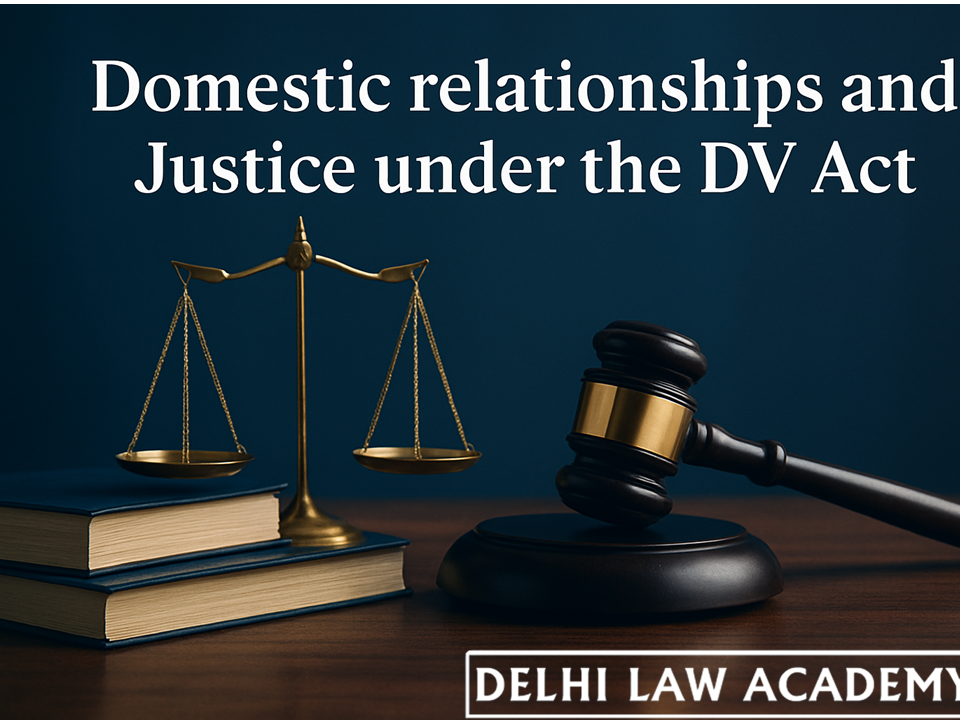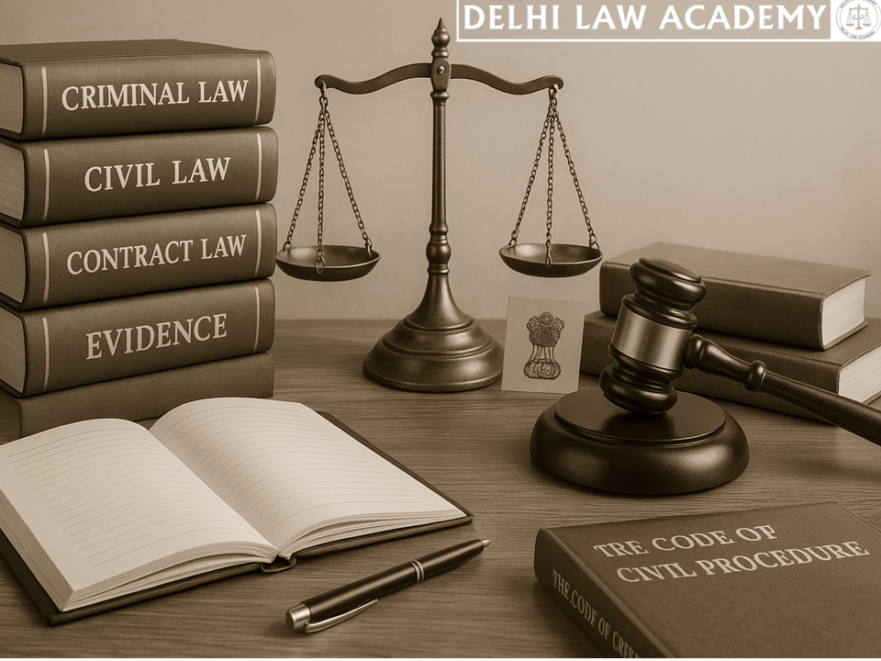
📘Domestic Violence Act explained through Questions and Answers
Part 1: Questions 1 – 10 — Delhi Law Academy Jaipur has concisely presented the entire Protection of Women from Domestic Violence Act 2005 in question-answer form.
Domestic Violence Act explained through Questions and Answers Part 1: Questions 1 - 10 Delhi Law Academy Jaipur has concisely presented the entire Protection of Women from Domestic Violence Act 2005 in question-answer form: Question 1: • Who is an “aggrieved person” under the Domestic Violence Act? Ans: • Under the Domestic Violence Act Aggrieved person means a woman • who is [or has been] in a domestic relationship with the respondent and • who alleges to have been subjected to an act of domestic violence Question 2: • What is meant by a “domestic relationship” under the Domestic Violence Act? Ans: • “domestic relationship” means • a relationship between two persons • who live [or have lived] in a shared household • when they • are related by consanguinity or marriage or • are related through a relationship in the nature of marriage or • are related through adoption or • are family members living together as a joint family Question 3: • What is meant by a “shared household”? Ans: • “shared household” means a household • where the person aggrieved lives [or has lived] in a domestic relationship • either singly or along with the respondent ... Question 4: • Can there be a relationship in the nature of marriage in a case where the party entering into the relationship knew that the other party was already married? Ans: The answer is based on a Supreme Court judgment of 2013 in the case of Indra Sarma v. V.K.V. Sarma: • This relationship is not a “relationship in the nature of marriage” because it has no inherent or essential characteristic of a marriage. It is a relationship other than “in the nature of marriage” and the appellant’s status is lower than the status of a wife. • All live-in- relationships are not relationships in the nature of marriage. • This relationship would not fall within the definition of “domestic relationship” u/s 2(f) of the DV Act. Consequently, any conduct of the respondent in connection with this type of relationship would not amount to “domestic violence” under the DV Act. Question 5: • What is a “domestic incident report”? Ans: • “domestic incident report” means • a report made in prescribed form on receipt of a complaint of domestic violence from an aggrieved person Question 6: • Against whom can a complaint be filed under the DV Act? Ans: • Against any adult male person • who is [or has been] in a domestic relationship with the aggrieved person and • against whom the aggrieved person has sought relief • An aggrieved wife or female living in a relationship in the nature of marriage may also file a complaint against a relative of the husband or male partner. Question 7: • What does “monetary relief’ mean under the Protection of Women from Domestic Violence Act 2005? Ans: • “monetary relief” means compensation • to meet expenses incurred and • to meet losses suffered as a result of domestic violence Question 8: • Elaborate the meaning and scope of “domestic violence” under the DV Act? Ans: • The term domestic violence has been defined u/s 3 of the DV Act. It means – conduct which harms or endangers the health or well-being of the aggrieved person, whether mental or physical – conduct which causes physical abuse, sexual abuse, verbal and emotional abuse and economic abuse of the aggrieved person – harassment of the aggrieved person or her relative to meet any unlawful demand for dowry or other property – conduct which has the effect of threatening the aggrieved person or her relative with any act mentioned above Question 9: • Which “abuses” are included within “domestic violence” under the DV Act? Ans: • Physical abuse • Sexual abuse • Verbal and emotional abuse • Economic abuse Question 10: • What is meant by “physical abuse” under the DV Act? Ans: • “physical abuse” means – conduct which causes bodily pain or danger to life, limb or health of the aggrieved person – conduct which impairs health or development of the aggrieved person – assault, criminal intimidation and criminal force
📘 Free Study Material for RJS Aspirants!
Want a head start in your RJS Coaching in Jaipur preparation?
Download our FREE study material prepared by Delhi Law Academy’s expert faculty.
Contact us
📍 Delhi Law Academy – Jaipur Branch
6C, Tower 2, Coaching Hub, Pratap Nagar, Jaipur – 302033
📞 Phone:
+91 9911916552
+91 8447285606
✉️ Email:
contactus@delhilawacademy.com

